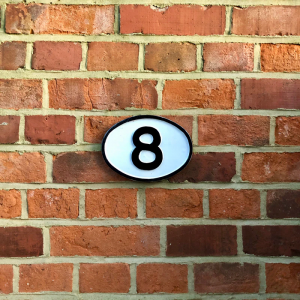by Rev. Dr. Linda Hartley, Assoc. Minister (Designated Term)
It’s a New Year! No matter that we’re only a few days past 2020, it does feel like a fresh start. Have you made any New Year’s resolutions this year? (Is anyone doing that this year?) If you did, have you kept them? Or are you finding them already broken? If you have made resolutions and are finding it hard to keep them, I hope you’re allowing yourself some grace. While the desire to make changes that will enhance our lives is worthwhile, studies show that change doesn’t happen overnight – it certainly doesn’t happen simply because the calendar changes. True change often takes time and continued rededication.
This year, I’ve heard friends speak about setting “intentions” instead of resolutions for the new year – what they want to work toward. It still involves setting some goals, but perhaps with a gentler and more measured approach. One thing a new year does offer us is a starting point, a place to begin. The clean slate of a new year offers us a fresh canvas upon which we can paint new possibilities. If you don’t paint or draw, you may get the same feeling from looking out the window of an airplane, or standing on top of a mountain looking out on the landscape spreading before you. Either way, we may find ourselves awed by the openness and vastness.
If you are a hiker (or have been a hiker), you’ve probably experienced this yourself. Although I would never  characterize myself as a hiker, I learned to appreciate this from a hike I went on with my dad when I was little. My dad was someone who loved the outdoors. He grew up on a farm in Illinois and his idea of relaxation almost always involved being in nature. We spent several summer vacations touring national parks out West where he would take day hikes into the woods or to the top of a peak to see the promised vista.
characterize myself as a hiker, I learned to appreciate this from a hike I went on with my dad when I was little. My dad was someone who loved the outdoors. He grew up on a farm in Illinois and his idea of relaxation almost always involved being in nature. We spent several summer vacations touring national parks out West where he would take day hikes into the woods or to the top of a peak to see the promised vista.
When I was about seven, we went to Glacier National Park in Montana. We stayed in a cabin, which was fun by itself, and enjoyed being deep in the woods. Mostly I stayed with my mom, who wasn’t interested in hiking at all. But, one morning, my dad took me with him on a short hike to a scenic overlook. Now given my age, it was probably a small mountain (or a big hill) that we hiked that day. But as we hiked, it started to feel like a very big mountain to my legs and feet. About half way up, I got tired and didn’t want to go on. But he was insistent that I could make it all the way to the top, so I trudged on. When we reached the scenic overlook, I had to admit that the view of the valley from that perspective was beautiful. And it changed my perspective about the energy exerted to get there.
Many things can cause us to change our perspective. It can be accomplishing something we didn’t know we could do, like hiking up a mountain. It can be new information that changes how we understand something about ourselves or our world. It can be a supportive comment from a friend that help us see ourselves differently. It can be an answer to  prayer that helps us see a challenge in a new light. A shift in perspective doesn’t have to be earth shattering to have an impact on us. The author Anne Lamott, the novelist who has also written several books about her own faith journey, notes that a shift of only eight degrees can help us see things very differently (Help, Thanks, Wow: The Three Essential Prayers, p. 40).
prayer that helps us see a challenge in a new light. A shift in perspective doesn’t have to be earth shattering to have an impact on us. The author Anne Lamott, the novelist who has also written several books about her own faith journey, notes that a shift of only eight degrees can help us see things very differently (Help, Thanks, Wow: The Three Essential Prayers, p. 40).
Only eight degrees! I find that comforting. Meaningful change doesn’t require us to do a 180. Even a change of eight degrees in our perspective can lead to change. Only eight. If you think about it, with a shift of eight degrees in your focus, you may see the dust bunny in that corner that you hadn’t noticed before. Or you may notice the beauty of that lone leaf holding on to the bare tree branch against all odds. Or you may see the book on the shelf that you thought you’d lost. Maybe a shift in perspective of only eight degrees can help you see the way God is guiding you out of a situation you’ve been struggling with. Or help you see the way God is with you, even now, even while you’re waiting for guidance.
For those of us who look to the biblical record for guidance, it’s often helpful to look at the familiar stories from a new perspective. It can help us see aspects of the stories that we may have overlooked. Starting this coming Sunday, Dale and I will be exploring some familiar parables from a new perspective. With the help of a book by biblical scholar Amy-Jill Levine, we will be looking at these familiar “short stories” from the perspective of Jesus’ Jewish audience and seeing how they would have received them. How would they have understood the grain of mustard seed, the yeast in three measures of flour, the pearl of great price, or the lost coin? We know that Jesus used parables to challenge his audience to see the familiar from a new perspective. Looking at them from a first century Jewish perspective offers us the possibility of gaining new insights into their meaning. We invite you to join us for this journey exploring the parables in a new light.
How would they have understood the grain of mustard seed, the yeast in three measures of flour, the pearl of great price, or the lost coin? We know that Jesus used parables to challenge his audience to see the familiar from a new perspective. Looking at them from a first century Jewish perspective offers us the possibility of gaining new insights into their meaning. We invite you to join us for this journey exploring the parables in a new light.
This is what a new year offers us – the opportunity to expand our sights beyond the familiar, and perhaps to set intentions that will shape our actions for the next year and beyond. And, as Anne Lamott notes, even if your perspective shifts by just eight degrees, it’s enough to create meaningful change.



